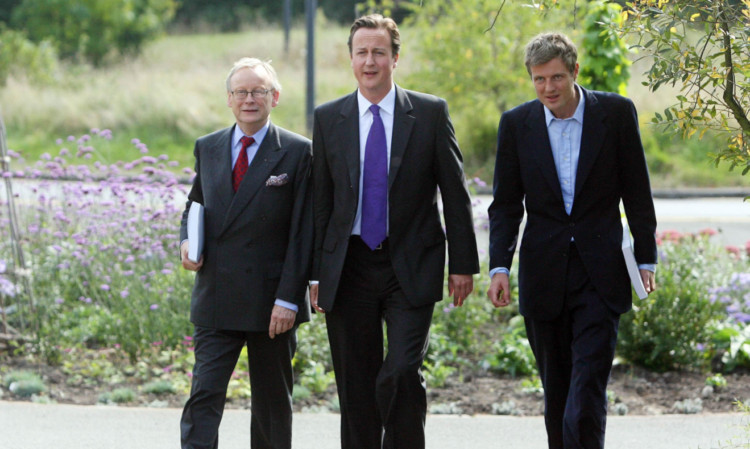
Lord Deben claims enfocing a carbon target would encourage green technologies, but fuel bills for punters will go up.
Some politicians just don’t seem to get it.
John Gummer was the Thatcher era minister photographed feeding a burger to his daughter at the height of the BSE in beef scare. This week he’ll be pressing the Government to adopt a measure that will actually increase energy bills. This at a time when every other politician is squabbling over the best way to cut the cost of fuel.
Gummer, now Lord Deben, is chair of the Climate Change Committee a body set up under the terms of the last Energy Bill, piloted through the Commons by Ed Miliband when he was Energy Secretary. The latest Energy Bill comes before the House of Lords this week where Lord Deben will attempt to amend it to include his pet measure.
He wants to see a carbon intensity target included in the act that’s sometimes called a decarbonisation target and it means the Government would be committed to greener electricity by 2030. What it means for punters is yet higher bills.
Explained Lord Deben: “I want to be straight with people the cost would add about £20 per year to bills between 2020-2030. That is an absolute cost. I want people to know the worst possible downside to their bills. What you get is significantly improved opportunities for reductions in cost.
“My determination is not to mislead. What we calculated is the cost with nothing coming off it. I would expect a real reduction towards the end of the period.”
So it would definitely hike bills, but it might eventually lead to drops.
Lord Deben claims that enforcing a carbon target would encourage green technologies, and investors in solar, tidal or wind energy could be confident there’s a future for such projects. In the long-term those methods of production are cheap, cutting the cost of generation. But in the short term higher bills and more wind farms?
He added: “Government plans don’t envisage on-shore wind farm growth beyond the current number.”
Lord Deben favours more homegrown green electricity because it would stop the UK from relying on imported fuel from abroad, such as gas from Russia.
He added: “I don’t want our children to be in the hands of Mr Putin’s children. I want to defend our energy supplies.”
A lot of the debate about both the Grangemouth plant that nearly closed last week and the new nuclear power station to be built at Hinckley Point, funded by French and Chinese money, centred on security implications. Renationalising the energy companies would solve such concerns.
Not surprisingly Lord Deben, Environment Secretary and food minister under Margaret Thatcher and John Major, disagrees.
He said: “For nationalisation to be realistic you have to believe that it would be more efficient than the market and I don’t see anyone seriously suggesting that. We have some of the lowest electricity prices in Europe. If we’d had a nationalised industry our prices would not be competitive.”
However, he concedes that recent price hikes which have seen most of the so-called Big Six energy firms announce rises of around 10% this winter are unacceptable.
He said: “The energy companies have handled themselves extremely badly.”
He thinks people worried about their winter fuel bills will actually back his plans for a decarbonisation target and its attendant costs.
He added: “If I was someone stressed about high energy prices I would say we have to get out of the grip of high gas prices. If we put in the target now we protect people against higher gas prices.”
That protection wouldn’t kick in for another 20 years, though.
He also wants more money in green technologies because it will create jobs, not just in his own East of England patch but in Scotland, too.
“A high proportion of the jobs associated with offshore wind would be up the East coast. That means jobs for Scotland and I want jobs in Scotland because it’s somewhere that has suffered the most from deindustrialisation.”
The role of Thatcher governments in that deindustrialisation seems to have passed him by.
But these days Lord Deben claims he is an independent to all intents and purposes. It’s a demonstration of the topsy turvy political times we live in that he’s trying to get a carbon intensity target a Lib Dem policy attached to an Energy Bill drawn up by a Lib Dem Secretary of State.
He smiled: “I’m not a Tory when it comes to these issues.”

Enjoy the convenience of having The Sunday Post delivered as a digital ePaper straight to your smartphone, tablet or computer.
Subscribe for only £5.49 a month and enjoy all the benefits of the printed paper as a digital replica.
Subscribe